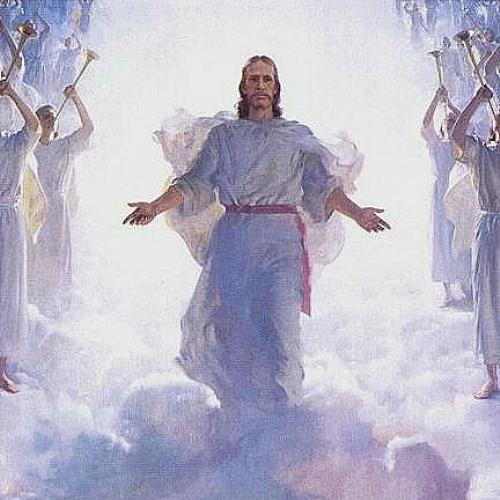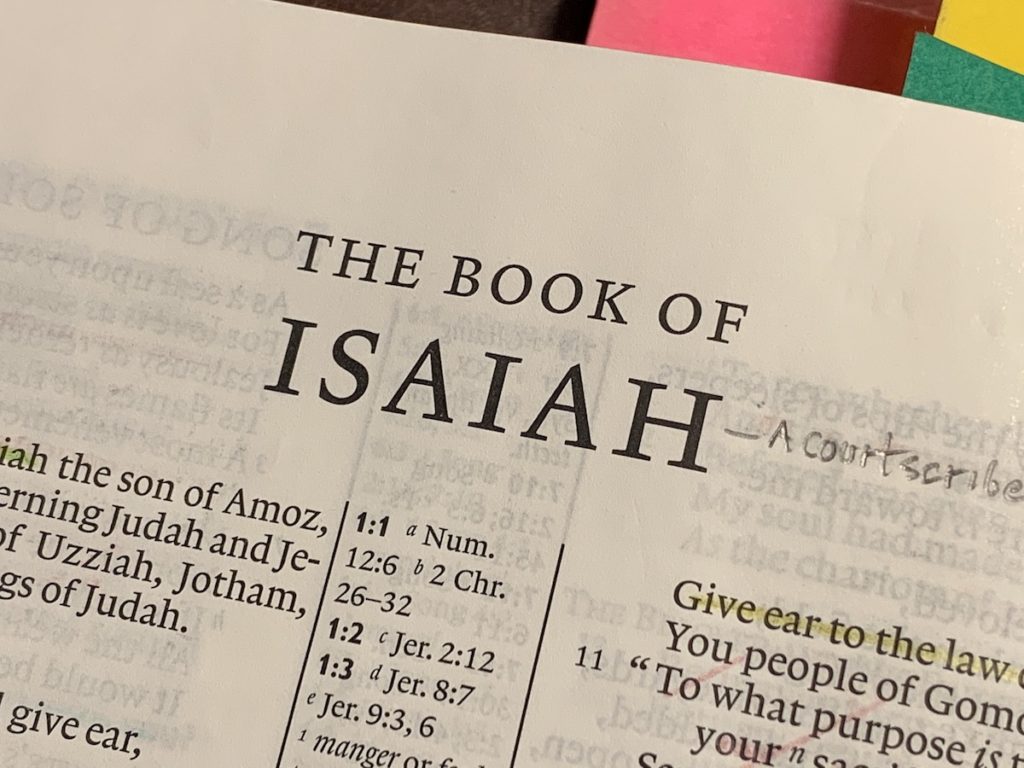
Isaiah 12
Isaiah 12:2, LORD Yehovah. Heb. YAH YHVH. Yah (Strong’s H3050; TWOT 484b) is a contraction of YHVH (Strong’s H3068, see TWOT 484b) and is found some 50 times in the Tanakh. (For more on this subject, see notes at Ps 68:4.)
Isaiah 12:2–3, El is my salvation. The Hebrew word for salvation is Yeshua. Three times Isaiah declares that Yeshua is the actual name of coming Messiah, that he is El (i.e., deity), that he is the source of salvation for those Israelites who had been scattered around the world, and that through him these scattered Israelites would be regathered (Isa 11:11–12).
Isaiah 14
Isaiah 14:4, Proverb.Heb. maschal meaning “proverb, a parable containing an instructive point, an extended didactic discourse, byword, a public example (especially relating to someone involved in unorthodox behavior). In comparing the king of Babylon to Lucifer, Isaiah is using the mashal as a parable to illustrate a point. This is a similar literary device that Ezekiel employed when comparing the prince of Tyre to the anointed cherub in Eden who fell from grace in Ezekiel 28.
Isaiah 14:9, The dead.Heb. rephaim. This refers to the dead spirits or ghosts of the dead humans or the dead inhabitants of the netherworld. The rephaim are another name for the giants who were the demigod offspring of the fallen angels or sons of Elohim and the daughters of men. When these human giants died, the evil spirits (the fallen angel part) that inhabited the human bodies became the demons who continue to torment humans to this day.
Isaiah 14:12–21, Lucifer. Linking the king of Babylon to Satan can present a hermeneutical problem unless one interprets this passage metaphorically. If so, is there biblical precedence for doing so? Yes, for elsewhere in the Scriptures, Babylon is a metaphor for this world’s anti-Elohim system of which the ultimate spiritual head of that system is Satan himself (Rev 13:2,4 cp. Rev 17:5; 18:1–24; 20:1–3) who is the god of this world (2 Cor 4:4).
The name Lucifer means “morning star,” which is also a name for Yeshua the Messiah (Rev 22:16). This emphasized the fact that Satan as the great counterfeiter and imitator has as his basic strategy the impersonation of Yeshua. After all, in this Isaiah passage, he says, “I will be like the Most High….” To this point, elsewhere we read that Satan comes as an angel of light in attempts to deceive even the saints of Elohim (2 Cor 11:13–15).
The parallels between Lucifer, the king of Babylon and the end times Man of Sin and Antichrist figure who plays a prominent role in the end times Babylon the Great worldwide system are striking. (For a discussion of this, see notes at 2 Thess 2:3–4.) Moreover, like the king of Babylon, Satan will fall from glory in defeat and will be cast into a pit and into the lake of fire (Luke 10:18; Rev 12:9; 20:1–3, 10).
Isaiah’s taunt of the king of Babylon in this passage goes to the heart of both the king’s and Satan’s rebellion against YHVH,which is pride. Both were attempting to deify themselves as the king of the earth, even as will the case with the end times Man of Sin, Antichrist figure along with the beast and whore systems with which he is aligned as revealed in Revelation chapters 13, 17 and 18.
Isaiah 17
Isaiah 17:5, Valley of Rephaim.This was a valley located east of Jerusalem, which produced abundant grain crops.
Isaiah 18
Isaiah 18:1–3, America in prophecy? In the chapter heading in some Christian Bibles, Isaiah chapter 18 is titled “Ethiopia.” Is this an accurate chapter heading? Isaiah 18:1 refers to “the land … which is beyond [on the other side of] the rivers of Ethiopia.” The traditional view among many biblical commentators (both from Christian and Jewish sources) is that this prophecy is referring to the area of modern Ethiopia, which is just south of Egypt. It is believed that the river mentioned in this passage is the Nile with its tributaries, while the ships are a reference to boats that regularly ply those waters, and the whirring wings refer to either locusts or to tsetse flies, which are abundant in that region. These same commentators offer various views on how this prophecy of Isaiah was fulfilled in ancient times. In these commentaries, no explanation was given of the meaning of the word sea in verse two and how that relates to Ethiopia, or how Ethiopia was a nation that was feared far and wide (verse 2). Perhaps another interpretation could be offered that would better fit the descriptions of the land and its people given in this prophecy.
Continue reading






